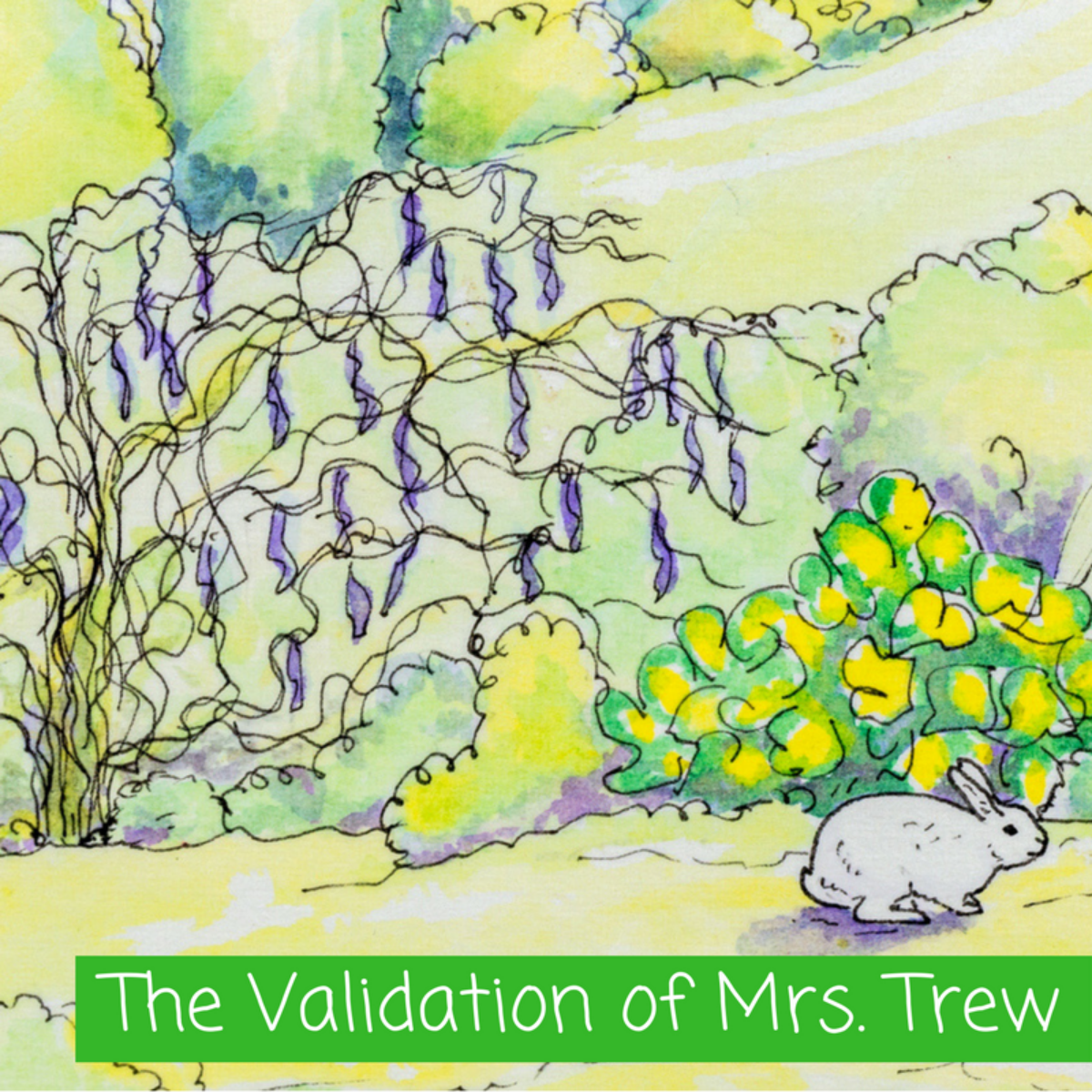
The Validation of Mrs. Trew
Creator of the Validation method for dementia care, Naomi Feil tells the story of an unforgettable older woman who was her childhood friend, and how she impacted her life and life’s work.
Validation is a method of communication with people with Alzheimer’s and other dementias, developed by Naomi Feil in 1967. It has been adopted worldwide, and used to reduce stress, enhance dignity, and increase happiness. Caregivers who use the Validation techniques focus on the expressed feelings of older adults, rather than focusing on disorientation and confusion. Here, author Naomi Feil shares her inspiration for her book The Validation Breakthrough: Simple Techniques for Communicating with People with Alzheimer’s and Other Dementias, Third Edition with a moving and personal story of an unforgettable woman.
Florence Trew 1872-1963 “I Died”
by Naomi Feil
“I died.”
I wrote this book for Florence Trew, a resident of a nursing home, and millions of people like her. I was 8 and she was 68 in December 1940 when we first met.
I grew up in a Home for the Aged. You had to be 65 or older to get into The Home. I got in because my father, a psychologist, was the administrator. My mother, the first master’s degree social worker to work in a Home for the Aged, established the Social Service Department in 1943.
Mrs. Trew was my best friend in The Home. I was never allowed to call her by her first name. She was always Mrs. Trew. She was tall and well built, with a fine, longish thin nose on which she 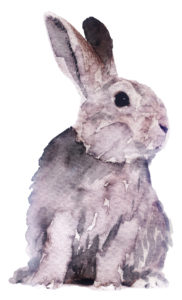 perched her bifocal lorgnette. Mrs. Trew would often shake her head up and down to make a point, her glasses bobbing dangerously, dancing at the very tip of her nose. Mrs. Trew read to me. I loved her low, clear, resonant voice. Her voice soothed me. Her voice trembled only once, when she read me a page in her diary.
perched her bifocal lorgnette. Mrs. Trew would often shake her head up and down to make a point, her glasses bobbing dangerously, dancing at the very tip of her nose. Mrs. Trew read to me. I loved her low, clear, resonant voice. Her voice soothed me. Her voice trembled only once, when she read me a page in her diary.
She had found me sobbing on the cracked pavement leading to The Home. My feet were tangled in roller skate straps. Mrs. Trew plunked herself beside me to catch every word. I explained that my mother had given my brother and me new roller skates. My brother’s skates were elegantly etched with the word Rollfast. My skates, in much smaller letters, said Skinner. I told Mrs. Trew that my mother loved my brother better. My skates were much skinnier than my brother’s, which is why he sailed gracefully far ahead, leaving me clunking, an awkward robot, far behind.
Mrs. Trew understood these inequities. To heal my hurt, she produced her diary, which she always carried in her big black shiny purse. Mrs. Trew found the page she wanted with her fingers, without looking. She touched the paper and froze. She squeezed her eyes shut. Suddenly, her eyes flared wide open, two blue question marks. We stared at each other, silently sharing misery.
Mrs. Trew began to read to me from her diary. Her sweet lyrical voice changed to a dull, flat, lifeless monotone. The words on the page spoke themselves without her soul.
June 10, 1891 Dear Diary
My mother hasn’t changed. She embarrassed me again today, just like she did in Miss Nelson’s third-grade class room. Remember, Diary? It was Tuesday, Parent–Teacher Night. She was talking to Miss Nelson just before the bell rang. My mother pointed her finger at me while she was talking, making everybody look at me. I scrunched myself down and willed myself to vanish. She whispered in a very loud voice, “Florence can’t let go of that ugly wooden rabbit. That’s why she has no friends.” She bent down close to Sally Quinn in the first row. “Honey, would you be friends with someone who drags a wooden rabbit around wherever she goes? No! You wouldn’t!” Sally Quinn giggled. My mother was satisfied. The whole class giggled. My mother made her point and turned back to Miss Nelson. “I’m worried about Florence. I don’t want her lugging that creaky rabbit around all her life.” My mother didn’t even bother to whisper. She moved toward me until she towered over me, holding out her hand for Creaky. “Creaky is mine,” I said. I loved Creaky so much that I stuttered. I held his string tighter, hiding him under my desk. Daddy had made him for my third birthday, just before he left us for good.
Creaky’s white pointed ears were smooth as velvet. Touching them made me feel peaceful, almost as if Daddy were with me. Daddy tied the string around Creaky’s neck so that I could pull him behind me. Creaky’s joints made a wonderful crackling sound when I pulled. I always knew he was there. My mother grabbed Creaky so hard that his hind leg snapped off. She marched up front and threw Creaky into Miss Nelson’s steel wastebasket. Creaky made a hollow sound as he hit the bottom. I ran up to save him. Miss Nelson took the wastebasket with Creaky away.
Mrs. Trew closed her diary and her eyes. I put my hand in hers. “What happened then?” I whispered.
“I died,” she answered.
“Mimi. Mimi, get me out of this chair.”
I said good-bye to my friend Mrs. Trew in 1950. She stayed in The Home, and I went to New York City to study psychology and social work at Columbia University. In 1956, I began working with older people in community centers in New York. In 1963, I returned to Cleveland to do postgraduate studies, to teach, and to work with the disoriented residents at The Home where I grew up.
The summer of 1963 was hot and humid. The windows were open in the day room of the Special Service Wing for Wandering and Disoriented Residents of The Home. “Help me! Help me!” Pleading voices drifted everywhere. No one turned to look. No one listened. The day room was bright, lit by the sun spotlighting rows of heads slumped in geri-chairs. The bodies were tied with white restraints. A few sat straight up, staring bleakly into space.
 I was drawn to a white shapeless form in a chair. It was an emaciated woman with paper-thin arms laced with blue veins. Like a vise, the massive chair, with its oversized back and flat wooden tray in the front, trapped the tiny old woman. Mechanically, she pounded the metallic tray imprisoning her. “Cree. Cree. Cree,” her low scratchy voice belched. The sound was eerie. Her hands caressed an invisible object, stroking something only she could see. Her head wobbled, cradled by bony shoulders. Loose strands of thin hair drifted into her blue eyes. She wore a house dress sprinkled with faded pink rosebuds, washed too many times, and torn terry cloth slippers. She grabbed my wrist and held it tight. I looked at her long fingers, the nails brittle, her forearm splotched with liver spots. Bulging purple veins branched from each knuckle to her tiny wrist. I saw her name band.
I was drawn to a white shapeless form in a chair. It was an emaciated woman with paper-thin arms laced with blue veins. Like a vise, the massive chair, with its oversized back and flat wooden tray in the front, trapped the tiny old woman. Mechanically, she pounded the metallic tray imprisoning her. “Cree. Cree. Cree,” her low scratchy voice belched. The sound was eerie. Her hands caressed an invisible object, stroking something only she could see. Her head wobbled, cradled by bony shoulders. Loose strands of thin hair drifted into her blue eyes. She wore a house dress sprinkled with faded pink rosebuds, washed too many times, and torn terry cloth slippers. She grabbed my wrist and held it tight. I looked at her long fingers, the nails brittle, her forearm splotched with liver spots. Bulging purple veins branched from each knuckle to her tiny wrist. I saw her name band.
“Florence Trew.”
Could this be the same Florence Trew? I saw Mrs. Trew in my mind’s eye. Twenty years earlier she had been 65 years old. When we were last together, we had sung “I’ve Been Workin’ on the Railroad!” together. Residents had shuffled by, shaking their heads in disapproval. Later, we had walked 7 miles to the movie theater on Euclid Heights Boulevard. We got in free because we lived in The Home. We shared a bag of popcorn and gaped at Flash Gordon. We were a team. Together, we had earned 30 cents a day picking spongy red rubber from worn-out tires to benefit the war effort. The two of us had won the Red Rubber Pickers Award. Mrs. Trew had hung the medal on her door.
My memory stuck in my throat as I bent down to meet her eyes. “Remember our medal, Mrs. Trew? Remember the war effort? Remember the Red Rubber Pickers?” She heard. She looked straight into my eyes, locking them. She whispered my nickname, “Mimi. Mimi, get me out of this chair.”
“You can’t untie her,” the nursing assistant warned me. “She fell three times last week trying to get away. If you untie her and she falls again, you are responsible.”
“Cree, cree, cree.”
“What happened?” I whispered to Mrs. Trew, bending very close.
“They threw him away. Make them give him back, Mimi. Please.” Mrs. Trew’s voice held the same soft ring of long ago. Her blue eyes were clear. Her hands holding mine were strong.
“Who?” I asked. “Mrs. Trew, who did they take away from you?”
“Creaky. She threw him in the wastebasket.” Mrs. Trew pointed to the nurse.
“That’s the nurse, Mrs. Trew, not your mother.”
Mrs. Trew shook her head, disappointed in me. She turned away, tuning me out to stare into space, moaning softly, “Cree. Cree. Cree.”
I persisted. “Mrs. Trew, did you have a stroke?” I wondered about her recent memory. She stared at me, speechless. Her lips formed words but no sound. She sat limp, resigned, conforming her body to the restraints. She sighed, “I’m dead.”
I argued. “Mrs. Trew, you can’t be dead. You are talking to me!”
“Honey, you are hearing things,” Mrs. Trew said sadly.
“Do you want to die, Mrs. Trew?” I asked softly.
“Yes.” Her answer was sharp and clear. “Creaky and I are rubbish. Red rubber rubbish. Rub. Rub. Rub a dub dub. Throw us in the trash can!”
Mrs. Trew’s voice rose suddenly to a shriek, piercing the day room. She hurled the imaginary object across the floor.
“Shut up, lady!” A hoarse male voice bounced back.
“SHUT UP!” A chorus of voices bleated.
Mrs. Trew started to cry, whispering between sobs, “Poor Creaky. She tore your legs. Your white ear is so soft. Get me out of this chair. Help! Help!” Mrs. Trew screamed.
I put my arms around Mrs. Trew.
A hoarse male voice shouted, “She’s nuts, lady. You can’t help her. Help me! Get these offa’ me!” The very old man tugged at his restraints. The strong white fabric would not give an inch. Frustrated, his voice topped Mrs. Trew’s. The day room became a chorus of out-of-tune voices. “Help! Get me out of here! Shut up. Son of a bitch! Give ‘em all chloroform!”
The nursing assistant gave me a dirty look. Her sharp voice cut through the wails. “You’re getting them all worked up. Once they start, you can’t stop them.” She tightened Mrs. Trew’s restraint with a brisk, efficient yank as she spoke. Mrs. Trew swished her foot hard against the nursing assistant’s shin. Mrs. Trew hollered, “Give me back Creaky, you bitch! I hate you! All the children in this classroom hate you!”
Controlled, patient, and calm, the nursing assistant moistened her lips with her tongue. She waved her arm at the old figures slumped in geri-chairs. “Please don’t upset them, Naomi. You can’t help them. I’ve been working here for 5 years, and I ought to know.”
She never looked at Mrs. Trew but grabbed her chair and wheeled her quickly down the long hallway, talking to the chair back. “Sweetie, you shouldn’t use those bad words. You know better than that. A bitch,” she explained patiently, “is a female dog. I am not a female dog. I am your nurse, and I love you. It’s time to go beddy-by. Everything will be just fine, honey.” Her voice drifted, honey toned, through the corridor and finally faded.
Mrs. Trew never had a chance to turn her head to look back at me. Mrs. Trew and I never had a chance to say goodbye. She died that night.
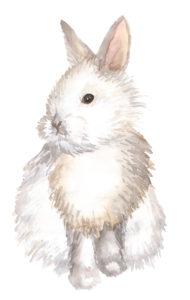
People from the past become real.
I spent the next 30 years working with people like Mrs. Trew. I developed Validation, a way of communicating with them. The disoriented, elderly people taught me. I learned from their social histories, their families, their nurses, and their friends. I learned by mistakes. I learned that elderly, disoriented people have an intuitive wisdom, a basic humanity that we all share. Behind their disorientation lies a human knowing. This humanity stretches beyond present time, culture, race, geography, and religion. When present time and place fade, when work goes, when rules no longer matter, when social obligations have lost meaning, a basic humanity shines through.
Nature helps these people find their inner wisdom. When their eyes fail and the outside world blurs, elderly people look inside. They use their vivid mind’s eye to see. People from the past become real. When recent memory goes and time blurs, they begin to measure life in terms of memories, not minutes. When they lose their speech, similar sounds, rhythms, and early-learned movements substitute for words. To survive the present-day losses, they restore the past. They find much wisdom in the past.
“Please don’t upset them, Naomi. You can’t help them.”
I wrote The Validation Breakthrough for four reasons. First, I wrote so that sons, daughters, nurses, doctors, neighbors, and friends will learn how to use Validation. They will learn to walk beside the elderly in this final life stage. They will learn empathy. They will learn to listen and talk with the disoriented instead of restraining them or patronizing them or telling them what to do. They will learn to respect them.
Second, I wrote so that the caregiver will find some pleasure in being with the person they are caring for. A 50-year-old daughter who understands why her mother packs her bag to see a long-dead husband can relate to her mother. The daughter will learn more about her own parent. A nurse who knows how to touch a slumped, speechless figure can spark a memory of a mother’s touch. The old woman’s eyes light. Her lips form a word. Her body straightens. The nurse and the old woman sing a familiar lullaby. The old woman does not know the nurse’s name, but the old woman loves the nurse. The nurse feels joy in being loved and giving new life to the old woman. The interaction takes 3 minutes.
Third, I wrote it for all of us who will become old and who want to age successfully. When we gain empathy with the disoriented, we begin to understand the reasons behind their disorientation. We can learn the ingredients for successful aging. We can gain insight into our own hang-ups. We can learn to recognize our own unresolved life tasks. We can work on completing these tasks now—before we reach old age. We can find a repertoire for coping with losses. If we face scary feelings when we’re young, then we won’t be stuck with a backpack of dirty laundry when we get to be old. We need to prepare for old age while our speech, logic, and social controls are intact and we have the capacity to change.
Finally, I wrote it for younger generations who will become caregivers. We want our caregivers to understand us, not restrain us. If our controls have weakened, if we expose our sores, if our feelings, as well as our bladders, should become incontinent, we do not want to be tranquilized. We do not want to be labeled “senile delinquents.” If buried rage surfaces out of sequence—in the final life stage instead of in adolescence—we want empathy.
We do not want to be tranquilized. We want empathy.
Mrs. Trew controlled her feelings throughout her life. She buried her anger at her mother. Only after age 80—after she lost physical controls, after she lost her husband, her home, her daughter, her clear vision, her recent memory, and her mobility—did she relive her painful memory. Over and over, in the day room of the nursing home, she yelled at her mother. The nurse was a blur. Mrs. Trew’s optic nerve was damaged, but she could focus clearly with her mind’s eye. She used the nurse’s shadowy form to restore her mother. She transformed the blurry figures in wheelchairs to children sitting behind desks in a third-grade classroom.
Mrs. Trew had entered the Resolution Stage of Life. Her final task: to clean the slate before she died. She returned to the past to resolve old hurts. Eight-year-old Florence never shouted, “MOTHER, I DIED THE DAY YOU THREW CREAKY IN THE WASTEBASKET!”
She waited 80 years. She waited too long.
This post was adapted from The Validation Breakthrough: Simple Techniques for Communicating with People with Alzheimer’s and Other Dementias, Third Edition by Naomi Feil and Vicki de Klerk-Rubin. Copyright © 2012 by Naomi Feil. All rights reserved.
Read the book!
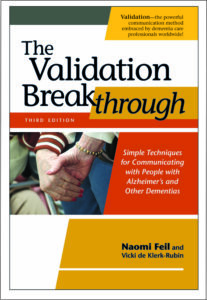 The Validation Breakthrough
The Validation Breakthrough
Simple Techniques for Communicating with People with Alzheimer’s and Other Dementias
Third Edition
By Naomi Feil and Vicki de Klerk-Rubin
Copyright © 2012 by Naomi Feil. All rights reserved.
This method to dementia care helps reduce stress, enhance dignity, and increase happiness. Since its inception in 1989, Validation has helped thousands of professional and family caregivers improve their relationships with residents and loved ones with dementia. Caregivers who use these techniques validate older adults’ expressed feelings, rather than focusing on disorientation and confusion.


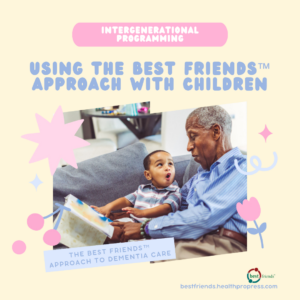

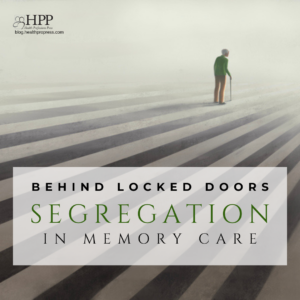
comments
Marilyn Monrow says
Thanks for sharing, it really moved me. Seniors with such a perspective should go for in-home care services, with which they can enjoy their independence and comfort of home while receiving care and companionship.
Add comment
replies
Add comment